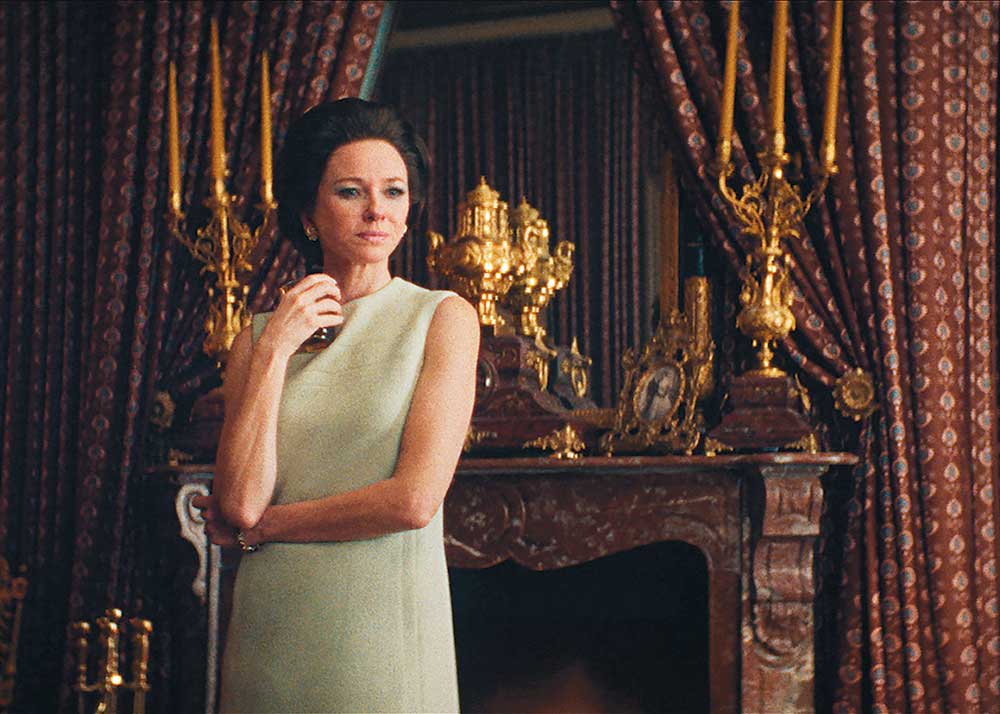The new season of Feud recounts how spilled secrets ricocheted through New York high society
At the height of his fame, acclaimed writer Truman Capote surrounded himself with society’s most elite women — rich, glamorous socialites that he nicknamed the “Swans.” Capote befriended the beautiful and distinguished Babe Paley, Slim Keith, C.Z. Guest, Ann Woodward and Lee Radziwill, becoming their confidant, only to betray them by writing thinly veiled fictionalized stories of their lives.

Exec producer Ryan Murphy’s first instalment of Feud centred on Golden Age Hollywood frenemies Bette Davis and Joan Crawford. This second season, co-created by Murphy and showrunner Jon Robin Baitz (Brothers & Sisters), is about the wrath of New York high society, when an excerpt called “La Côte Basque, 1965,” from Capote’s never-completed book Answered Prayers, was published, exposing their most intimate secrets. Banished from the social circles that he loved so much, Capote descends into a spiral of self-destruction from which he will never recover. “This is a story of a man who’s in despair,” says Baitz. “The things he appreciates and lives for are all crumbling around him.”

The war against Capote (played by The White Lotus’s Tom Hollander) was headed up by Slim Keith (Diane Lane), an American socialite and wife of British aristocrat Kenneth Keith, whom Capote used as the unflattering model for the character Lady Coolbirth in the novel. “There was a lot of loss in this betrayal,” says Lane, who leaned on Keith’s memoir to portray the group’s ringleader. “I have an extra amount of compassion for [her] anger, because she did empower him and nurture his growth and was there for a lot of his formative time. They travelled the world together. She seemed to have a sixth sense about not trusting him with too much of her secrets, so when she was chosen to be the person quoted about other people’s indiscretions in the infamous article — as though she were the one betraying the ladies who lunch and everyone else — she was really baffled.”

Keith was not the only Swan burned by the excerpt, with Capote also spilling the scandalous secrets of C.Z. Guest (Chloë Sevigny), Lee Radziwill (Calista Flockhart) and Ann Woodward (Demi Moore). Most impactful, however, was the unravelling of the friendship between Capote and Babe Paley (Naomi Watts), wife of CBS founder William S. Paley (Treat Williams), which took place when her husband’s egregious philandering served as creative inspiration for the author. “Babe is someone who’s well-calloused by this point — she knows there’s an affair here, another one there. But when she shares her secrets with Truman and she feels seen and listened to in such a deep way — it was the deepest romance she’d ever had, minus the sex — and when the betrayal occurs, she just comes undone,” says Watts. “They all do, because they trusted him.”

Because Capote leaned on these friendships just as much as New York high society enjoyed his company, why would he jeopardize his relationship with the Swans? “Maybe they didn’t really think he was one of them, and he didn’t believe that he was one of them either,” muses Hollander, who stepped into the iconic and flamboyant shoes of the controversial author. “He knew that he was, on some level, a tourist in their world and they thought he was lucky to be there. When they felt he turned, they were vicious because they [thought] ‘From you? You were the adornment in our house. You are not our equal.’ And he probably knew that, which is why he writes “Côte Basque” in the way that he does. He’s enraged at his own position.”

Molly Ringwald, who plays Johnny Carson’s ex-wife Joanne — one of Capote’s few remaining friends once he falls out with the Swans — believes that these women truly did love him, which is why his excerpt struck them to the core. “I feel that it was such a betrayal because they adored him so much. And even though they knew he was a writer, they [thought they] were going to be immune to that, to what writers do, which is use material in their lives and fictionalize it,” says Ringwald. “I think one of the reasons why Joanne Carson stayed friends with him — because he wrote things about her too — was that she was in love with his genius.”

Although Capote is the catalyst for the events in the limited series, Baitz and Murphy use this opportunity to dive deep into the power and position held by women in upper-crust New York of that era — or perhaps lack thereof. “They were trapped in a wrong time,” says Watts. “They were uncredited for the work and the amount of time they put into making their husbands’ businesses go well. We definitely show it.” Indeed, for Murphy, the potential of the “Swans” was the most fascinating thing to explore. “All of those women in our show were so brilliant in their personal lives and so intelligent that I do think 10 years [later], they all would’ve had successful businesses or brands,” he says. “One of the reasons they turned to Truman is because he was the one who said to them, ‘You’re actually smarter than your husbands, you control everything.’ There’s a sadness in that, for so many women of that generation, that we wanted to write to. They were the victims and also successes of their times.”
Feud: Capote vs. the Swans airs Wednesday, February 21 at 7 p.m., 8 p.m. & 10 p.m., FX Canada
